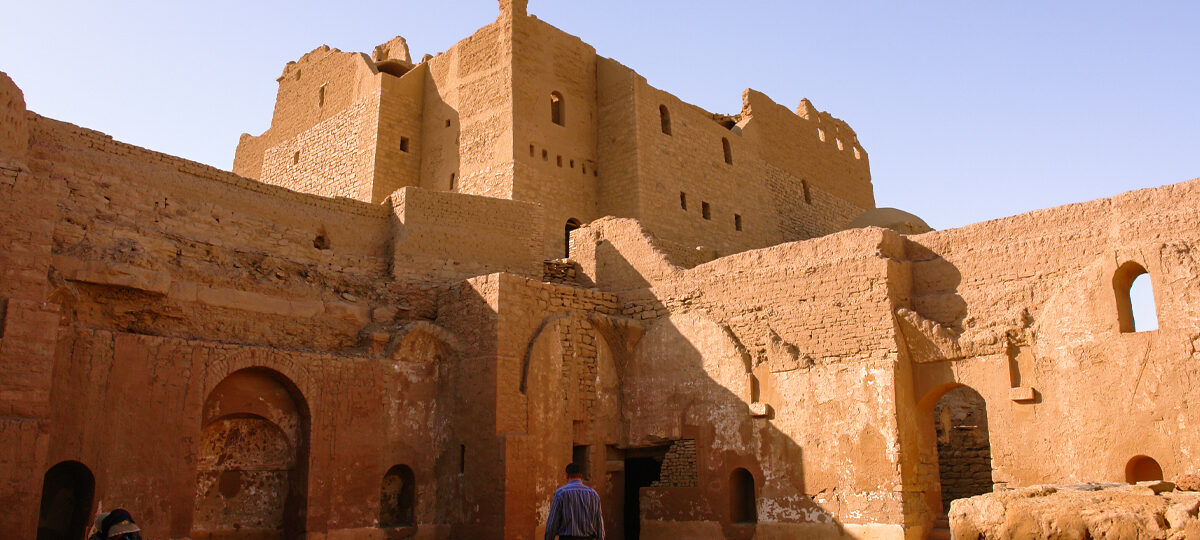Monastery of St Simeon
St. Simeon’s Monastery may be on Elephantine Island in the Nile. It is named after the patron saint of the city of Aswan. The fact that archeologists haven’t paid much attention to the ruins of the monastery is a big reason why it’s not on most Egypt tours. If you want to go see it, you can find it here. In the last few years, though, they have become more popular on their own as tourist
destinations. This is because the island is home to the Tombs of the Nobles and other famous landmarks, and Nile River cruises are becoming more popular. Both of these things may be making the island a more popular place to go on vacation.
History Of The Saint Simeon Monastery:

The Saint Simeon Monastery was started by a monk in the seventh century. Later, it was said to have been started by a local saint named Anba Hedra, who lived in the fourth century. On the day of his wedding, Anba Hedra is said to have seen a funeral procession. He then gave up on people and decided to live a life of celibacy and asceticism. According to the myth, Anba Hedra became an ascetic because of this choice.
For the next seven years, St. Simeon, who used to be called Anba Hedra, studied theology with Saint Baiman. Eight years after he quit school, Anba Hedra moved to the desert to study Saint Anthony for the rest of his life.
Later, Anba Hedra moved to Elephantine Island, where he started to build a monastery. The first building at Saint Simeon Monastery was surrounded by a stone and mud brick wall that was 10 feet tall. This made it look like the monastery was a strong fort. The records show that the monastery was either rebuilt from scratch or made much bigger in the 10th century.
When it was finished in the 10th century, the monastery could house three hundred monks and one hundred visitors. The monks who lived at the monastery often went to Nubia to spread Christianity to the people who lived there. The Saint Simeon Monastery was almost completely destroyed when Saladin and his soldiers attacked it in 1173, and it was never rebuilt.
Visiting The Monastery Of St. Simeon Today:

Even though the monastery is mostly just a bunch of ruins, there are some interesting things to see there, which is why it is often on lists of must-see places in Aswan. For example, you can still see writing on the walls of the last pilgrim room, which is on the right side of the building. A Muslim guest wrote these words on a wall of the monastery not long before it was destroyed. Also, people can see the room where Saint Simeon spent so much time praying. The story goes that when he fell asleep during these long times of prayer, he would tie his beard to the ceiling above his head.
Some of Egypt’s oldest tombs from the Old Kingdom, like the Saint Simeon Monastery and the Tombs of the Nobles, are on the same small island. Because the small island has other interesting places to see, like the Tombs of the Nobles, going to the monastery is a must.
Tourists can easily see the island’s sights, like the ruins of the monastery, by renting camels from locals waiting at the port. Tourists who want to rent a camel should always try to get a fair price and let the owner know how long they will need the animal for.
Elephantine Island is not usually part of most Egypt tours, so most people don’t get to see it. This attraction is not included on many of our Nile cruises, especially those that go between Luxor and Aswan or between Aswan and Aswan. Our cruises on the Nile go both up and down the same path. But the island and nearby places like Kitchener’s Island can be seen in a single day. You can sign up for these trips online. If you want to go to the Saint Simeon Monastery while you’re in Egypt, make sure to let your travel planner know.

